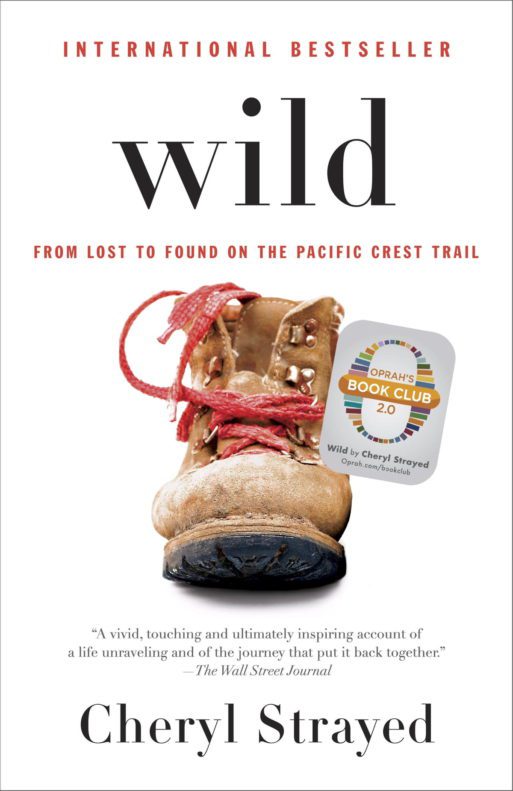 A few weeks ago, I was very pleased to find a book had magically downloaded on my Kindle. I forgot I’d preordered it months ago after reading Cheryl Strayed’s essay, “The Love of My Life.” After her mother died suddenly when Strayed was only twenty-two, she embarked on a series of affairs that eventually dissolved her young marriage. She struggles with her grief and the idea that our society doesn’t embrace the grieving process. At the end of the essay, she is divorced, still heartbroken, and about to leave for a summer-long backpacking trip along the Pacific Crest Trail. That’s where Wild picks up.
A few weeks ago, I was very pleased to find a book had magically downloaded on my Kindle. I forgot I’d preordered it months ago after reading Cheryl Strayed’s essay, “The Love of My Life.” After her mother died suddenly when Strayed was only twenty-two, she embarked on a series of affairs that eventually dissolved her young marriage. She struggles with her grief and the idea that our society doesn’t embrace the grieving process. At the end of the essay, she is divorced, still heartbroken, and about to leave for a summer-long backpacking trip along the Pacific Crest Trail. That’s where Wild picks up.
Because I loved her essay, it came as no surprise that I loved her memoir. It is painfully honest, funny, and raw in most instances. Just like in her essay, Strayed tackles a variety of uncomfortable subjects (death, sex, failed relationships) with a self-awareness that’s often hard to find in memoirs these days. Her bravery is apparent in every sentence of this piece, but her vulnerability comes across as well. “Fear, to a great extent,” she says, “is born of a story we tell ourselves, and so I chose to tell myself a different story from the one women are told. I decided I was safe” (51). Her story spills over with strength that can provide comfort and inspiration to people from all walks of life—especially those dealing with loss.
“I chose to tell myself a different story from the one women are told.”
As I mentioned in my previous piece on Strayed’s essay, her ideas on grief are forward-thinking and complex. The voice in her work is strikingly beautiful but also simple at times, conveying a kind of removed confidence. As she says about her mother, “It was only after her death that I realized who she was: the apparently magical force at the center of our family who’d kept us all invisibly spinning in the powerful orbit around her” (34). After she loses her mother, she essentially loses her family as well.
Through her trip into the wilderness, Strayed has the distance to reflect on who her mother was as an individual as opposed to who her mother was only in relation to herself. This allows her to appreciate her mother but also to accept her as a flawed human being, which consequently allows her to move on in a healthy way. “Saying Bobbi instead of Mom felt like a revelation,” she says, “like it was the first time that I truly understood that she was my mother, but also more. When she’d died, I’d lost that too—the Bobbi she’d been, the woman who was separate from who she was to me” (269). In this way, she gives herself freedom to grieve but also the freedom to let go of the one person she held most dear.
“It was the first time that I truly understood that she was my mother, but also more.”
Alone and facing grueling hikes on a daily basis, Strayed succumbs to her most basic, human needs. Physically drained at the end of each day, she forgets her personal problems, instead focusing on ones necessary for survival. Reflecting on this, she says, “I’d thought I’d weep tears of cathartic sorrow and restorative joy each day of my journey. Instead, I only moaned, and not because my heart ached. It was because my feet did and my back did and so did the still-open wounds all around my hips” (84). While we might not all go on thousand-mile hiking trips to sort out our emotional pain, this insight applies on more levels than one. When trying to solve those big life questions, our seemingly small needs tend to fall to the wayside. Are we giving our bodies all of the nutrients it needs? Are we remembering to drink water? Are we getting enough exercise? Enough rest? From this highly personalized memoir, I think we can all learn something about what it means to grieve and how to take care of ourselves in the process.
To hear an excerpt from her book, go here: Video
For more information and new releases from Cheryl Strayed, visit: http://www.cherylstrayed.com/
Related Articles
- Cheryl Strayed talks about “Wild” (csmonitor.com)

 Wild by Cheryl Strayed
Wild by Cheryl Strayed



 John Mulaney’s “Funeral Planning” on Netflix: No Real Plan
John Mulaney’s “Funeral Planning” on Netflix: No Real Plan

 Composting Bodies Is Now Legal in a Dozen States
Composting Bodies Is Now Legal in a Dozen States














